
 i_need_contribute
i_need_contribute
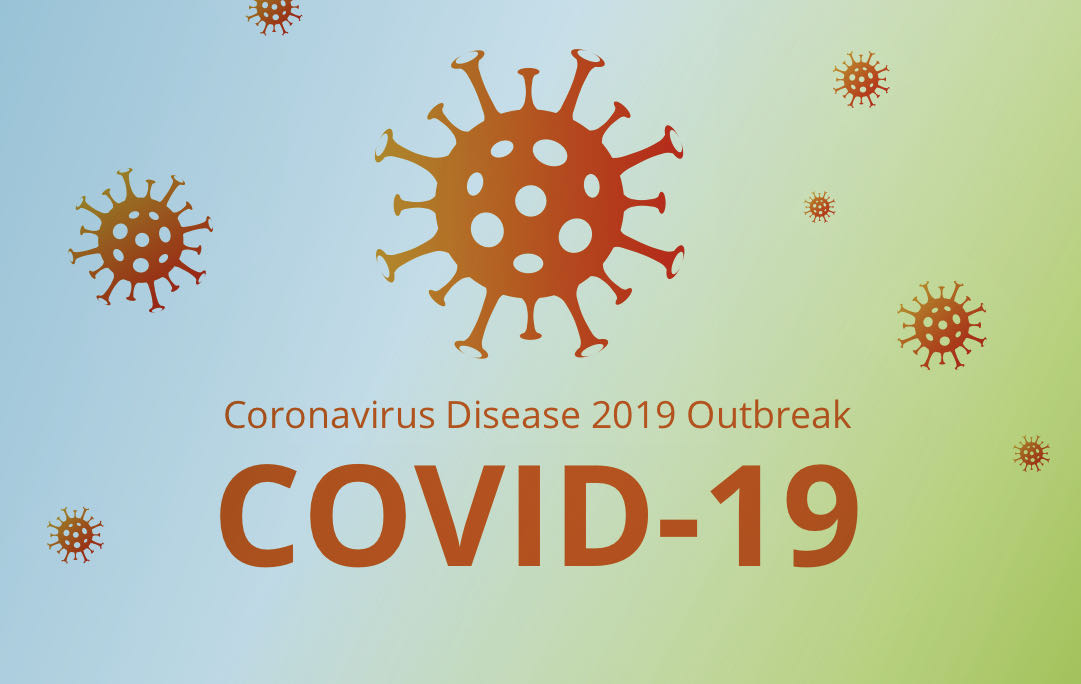



|
Country, |
Total |
New |
Total |
|
World |
6,259,249 |
+108,767 |
373,697 |
|
1,837,170 |
+20,350 |
106,195 |
|
|
514,849 |
+16,409 |
29,314 |
|
|
405,843 |
+9,268 |
4,693 |
|
|
286,509 |
+201 |
27,127 |
|
|
274,762 |
+1,936 |
38,489 |
|
|
232,997 |
+333 |
33,415 |
|
|
190,609 |
+8,782 |
5,408 |
|
|
188,882 |
+257 |
28,802 |
|
|
183,494 |
+200 |
8,605 |
|
|
164,476 |
+8,805 |
4,506 |
|
|
163,942 |
+839 |
4,540 |
|
|
151,466 |
+2,516 |
7,797 |
|
|
99,688 |
+4,830 |
1,054 |
|
|
90,947 |
+757 |
7,295 |
|
|
87,512 |
+2,885 |
9,779 |
|
|
85,261 |
+1,877 |
503 |
|
|
83,001 |
+2 |
4,634 |
|
|
69,496 |
+3,039 |
1,483 |
|
|
58,381 |
+195 |
9,467 |
|
|
56,910 |
+1,648 |
38 |
|
|
47,153 |
+2,545 |
650 |
|
|
46,442 |
+185 |
5,956 |
|
|
42,556 |
+898 |
235 |
|
|
39,098 |
+527 |
3,358 |
|
|
37,542 |
+429 |
4,395 |
|
|
34,884 |
+518 |
23 |
|
|
34,557 |
+661 |
264 |
|
|
32,683 |
+1,716 |
683 |
|
|
32,500 |
+297 |
1,410 |
|
|
30,862 |
+17 |
1,920 |
|
|
29,383 |
+1,147 |
939 |
|
|
27,043 |
+851 |
212 |
|
|
26,473 |
+700 |
1,613 |
|
|
24,990 |
+61 |
1,652 |
|
|
24,985 |
+1,536 |
959 |
|
|
23,786 |
+215 |
1,064 |
|
|
23,672 |
+468 |
708 |
|
|
19,257 |
+124 |
1,266 |
|
|
18,086 |
+862 |
957 |
|
|
17,285 |
+377 |
502 |
|
|
17,071 |
+59 |
285 |
|
|
16,851 |
+47 |
891 |
|
|
16,851 |
+637 |
539 |
|
|
16,731 |
+46 |
668 |
|
|
15,205 |
+680 |
257 |
|
|
13,463 |
+445 |
336 |
|
|
11,669 |
+36 |
574 |
|
|
11,468 |
+27 |
270 |
|
|
11,437 |
+1,014 |
49 |
|
|
11,412 |
+31 |
243 |
|
|
11,398 |
+605 |
19 |
|
|
10,858 |
+476 |
40 |
|
|
10,162 |
+307 |
287 |
|
|
9,592 |
+861 |
310 |
|
|
9,394 |
+127 |
653 |
|
|
9,282 |
+355 |
131 |
|
|
9,268 |
+38 |
320 |
|
|
8,440 |
+3 |
236 |
|
|
8,251 |
+153 |
295 |
|
|
7,881 |
+113 |
36 |
Source: https://www.worldometers.info/coronavirus/

Workers bury a victim of the coronavirus at a cemetery in Rio de Janeiro on Friday.Credit...Antonio Lacerda/EPA, via Shutterstock
The United States has delivered two million doses of a malaria drug to Brazil for use in the fight against the coronavirus pandemic, and the two countries are embarking on a joint research effort to study whether the drug is safe and effective for the prevention and early treatment of Covid-19, the White House announced Sunday.
The White House announcement comes after months of controversy over the drug, hydroxychloroquine, which President Trump has aggressively promoted, despite a lack of scientific evidence of its effectiveness as a treatment for Covid-19. Mr. Trump stunned public health experts recently by saying he was taking a two-week course of the medicine.
The donated doses will be used as a prophylactic “to help defend” Brazil’s nurses, doctors and health care professionals against infection, and will also be used as a therapeutic to treat Brazilians who become infected, the White House said.
Hydroxychloroquine is widely used for the prevention of malaria and for treatment of certain autoimmune diseases including rheumatoid arthritis and lupus, and many doctors consider it safe. But the Food and Drug Administration has warned that it can cause heart arrhythmias in some patients, and the debate over its use in the coronavirus pandemic has been politically fraught.
Early research in Brazil and New York suggested that it could be linked to a higher number of deaths among hospitalized patients. More recently, a review of a hospital database published by the influential medical journal, The Lancet, concluded that treating people who have Covid-19 with chloroquine and hydroxychloroquine did not help and might have increased the risk of abnormal heart rhythms and death.
But last week, more than 100 scientists and clinicians questioned the authenticity of that database. Some researchers say hydroxychloroquine does show promise as a possible prophylactic or treatment in the early stages of Covid-19, and a number of clinical trials — including one conducted by the National Institute for Allergy and Infectious Diseases — are trying to answer those questions. Amid the uproar, experts say, legitimate research has suffered.

A group at a bar in Mykonos, Greece, last week. The tourism sector accounts for one in five jobs in the country.Credit...Byron Smith/Getty Images
This week, as global coronavirus cases pass six million, many nations are entering a pivotal period, giving students, shoppers and travelers more freedom to return to some sense of normalcy after months under lockdown.
Greece, seeking to bolster its crucial tourism sector, announced one of the more aggressive reopening plans. After initially announcing on Friday that it would allow entries from 29 countries whose outbreaks were mostly contained, it shifted to allow flights from all countries.
From June 15 to June 30, the Greek foreign ministry said on Saturday, the flights will go to Greece’s two largest airports, in Athens and Thessaloniki. Passengers from the 29-nation list, including Germany, Australia and South Korea, will be subject to random tests. Those flying in from countries deemed by the European Union Aviation Safety Agency to have a high risk of virus transmission will be tested.
As of July 1, all Greek airports will reopen to international flights, with random screening for all passengers. Arrivals by sea will be allowed as of July 1, also subject to random testing.
In Britain, more stores will be allowed to open starting Monday, and small groups from different households can meet outdoors. Primary schools will open in England with new social-distancing rules and spaced seating. The government also gave the green light for professional sports to resume under strict protocols, according to government guidelines published on Saturday.
Other countries are creating “travel bubbles,” allowing visitors from nations with low infection rates.
Norway and Denmark will allow leisure travel between the two countries, excluding Sweden, where coronavirus infections are higher. Norway will also allow entry to business travelers from the other Nordic countries from Monday, the government said.
But in Spain, Prime Minister Pedro Sánchez said on Sunday that he would ask Parliament for a sixth and final extension to the state of emergency, allowing his central government to keep control over the lockdown in Madrid, Barcelona and other parts of the country until June 21.
Mr. Sánchez told a news conference that Spain needed to “immediately” recover its tourism sector, but that quarantine rules for outside visitors would be kept in place until July 1. “We cannot throw away all the work that we have done,” he said.

Relatives of Covid-19 patients waiting to take them food at a hospital in Managua.Credit...Inti Ocon for The New York Times
Nicaragua is one of the last countries to resist adopting strict measures to curb the spread of the virus. It never closed its schools. It did not shutter businesses. Throughout the pandemic, the government not only allowed mass events — it organized them.
Now there are signs everywhere that the virus is raging across the country, though the government insists it has the situation under control.
Long lines have formed at hospitals, and pharmacies have run out of basic medicines. Families of people who die of respiratory illnesses are being forced to hold “express burials” at all hours of the night, for fear of contagion.
Health organizations are struggling to get accurate case numbers. Testing is limited and controlled by the government. Doctors and activists are bracing for disaster, just two years after antigovernment uprisings against President Daniel Ortega turned violent.
Facing withering criticism, the government released a report last Monday stating that critics were trying to sow chaos, and that the vast majority of people in the country, the second-poorest in the hemisphere, could not afford to lose work under a strict lockdown.
Elena Cano said her 46-year-old son, Camilo Meléndez, the facilities manager at the National Assembly building, died on May 19 from “unusual severe pneumonia,” after trying to get medical care several times.
“The whole world has to understand the truth of the crime that our government is committing,” she said.

Demonstrators gathered in Atlanta during a protest on Saturday. Atlanta’s mayor, Keisha Lance Bottoms, said she was concerned that the protests could increase infections in communities of color.Credit...Dustin Chambers/Reuters
Mass protests over police violence against black Americans in at least 75 U.S. cities have spurred concern that the gatherings will seed new outbreaks.
Speaking on CNN, Atlanta’s mayor, Keisha Lance Bottoms, said she was concerned that the protests could increase infections in communities of color, which are already being disproportionately hit by the disease. Death rates among black Americans are double those of whites, and the economic toll of lockdowns has also inflicted disproportionate economic pain.
“I’m extremely concerned we are seeing mass gatherings,” Ms. Bottoms said. “We’re going to see the other side of this in a couple of weeks.”
Larry Hogan, the Republican governor of Maryland, echoed those concerns. Mr. Hogan told CNN the gatherings of “thousands of people jammed in together in close proximity” could lead to a spike in cases.
Dr. Ashish Jha, a professor of global health at Harvard’s T.H. Chan School of Public Health, urged protesters to take safety precautions, including wearing face masks and practicing social distancing.
On the CBS program “Face the Nation” on Sunday, Dr. Scott Gottlieb, the former commissioner of the Food and Drug Administration, noted that Minnesota had seen an uptick in cases before the protests. He also predicted that the protests would ignite chains of transmission.
“This country isn’t through this epidemic,” he said. “This is continuing to expand, but at a much slower rate, but it’s still expanding.”
The protests, spurred by the killing of George Floyd in the custody of the Minneapolis police, are pulsing through a country ragged with anger and anxiety. More than 100,000 Americans who were infected have died, and some 40 million are out of work.
The outbreak has inflicted disproportionate health and economic tolls on black and Latino communities.
“To have corona, and then this — it’s like a gut shot,” said Jimmy Mills, a barber in a working-class area of Minneapolis.

Protesters filled Times Square on Sunday afternoon.Credit...Chang W. Lee/The New York Times
New York City, reeling from days of chaotic confrontations between protesters and the police that have resulted in dozens of injuries, hundreds of arrests, smashed storefronts and burned police vehicles, braced on Sunday for a fourth night of turbulence over the death of George Floyd.
The protests in New York were part of escalating demonstrations in dozens of cities across the country that were sparked by a video capturing the final moments of Mr. Floyd, who is black, as a white police officer knelt on his neck for nearly nine minutes.
The growing protests in Manhattan, Brooklyn and other parts of the city on Sunday afternoon followed a long night of unrest the day before.
Mayor Bill de Blasio on Sunday tried to defend the protesters and the police, saying he would investigate any abuses by the police while urging protesters to refrain from violence.
The mayor’s remarks on Sunday represented a shift in tone from Saturday night, when he said that the New York Police Department had “overwhelmingly” acted appropriately and with restraint during the protests.
Police officials said they have made 786 arrests since the protests started three days ago, including three people who faced federal charges in connection with throwing Molotov cocktails at police cars.
The protests have raised fears among public health officials about a second wave of the virus. Dr. Theodore Long, who is leading New York City’s contact tracing efforts with its public hospitals agency, urged anyone who had been involved in the demonstrations to get tested for the virus.
Gov. Andrew Cuomo on Sunday announced 1,110 additional coronavirus cases for the state, bringing the total to 370,770.
“We have gone through hell and back — we are on the other side and it’s a lesson for all of us, and we need to stay vigilant as we reopen different parts of the state so that we don’t backslide,” he said. The governor also announced that dentists statewide can reopen their practices on Monday “as long as they follow health and safety guidelines that the state is laying out and that we have been discussing with them.”
Alaska, which has been one of the most aggressive states in seeking to reopen its economy during the coronavirus pandemic, has seen a sudden rise in identified coronavirus cases over the last few days. On Sunday, the state reported a record 27 new cases.
After Alaska, which has a population of about 731,545, reported its previous high of 22 cases on April 7, the number of identified infections dropped substantially. Throughout much of May, there were days when state officials reported zero or one case. But they have now identified about 50 in the past four days.
At the end of April, the state began to relax rules on in-person dining, allowing some of the first restaurants in the country to reopen. Alaska Gov. Mike Dunleavy, a Republican, finalized a broad rollback on business restrictions on May 22, saying that week: “It will all be open just like it was prior to the virus.”
One area of concern has been the seafood industry that draws thousands of workers to Alaska each year. The state said one of the new cases identified Sunday was in an industry worker in the Dillingham area, in southwest Alaska.

The audience at a performance by the Czech National Theater did not have to worry about other patrons coughing on them.
Patrick Kingsley, an international correspondent, and Laetitia Vancon, a photojournalist, are driving more than 3,700 miles to explore the reopening of the European continent after coronavirus lockdowns. Read all their dispatches.
PRAGUE — To attend her first play in more than two months, Marie Reslova, a prominent Czech theater critic, drove into Prague, headed to a large vegetable market, parked next to a convertible sports car and switched off her engine.
Soon, actors from the Czech National Theater strode onto a platform a few yards from Ms. Reslova’s windshield.
The play had begun. And she hadn’t even left her car.
The Czech Republic enforced tighter restrictions than most European countries to combat the coronavirus pandemic. For several weeks, Czechs were barred even from jogging without a mask. Even after the government eased that restriction, masks were still mandatory in most other public contexts.
But the country also loosened the lockdown earlier than most — and that has made it a laboratory for how arts and culture can adapt to a context in which some restrictions on social life have been lifted, while others remain in place.
The drive-in theater at Prague’s vegetable market was an ambitious example. To circumvent restrictions on public gatherings, audience members watched plays, concerts and comedy from behind their steering wheels — in a monthlong program that ended with a variety act by the National Theater last Sunday evening, attended by Ms. Reslova.
Across Europe, drive-ins have become a familiar means of circumventing pandemic restrictions. By default, cars keep their occupants socially distanced, leading even nightclub owners and priests to set up drive-in discos and churches.

Residents picked up baked goods from The Bernal Bakery, a project started by Ryan Stagg and Daniella Banchero, from their home in Bernal Heights.Credit...Cayce Clifford for The New York Times
The residents of Bernal Heights, a dense little neighborhood built around a grassy hill in the south of San Francisco, have been under lockdown a long time — since March 17, to be exact, when the city became among the first in the United States to shut down.
With incomes and freedom lost, and boredom and anxiety setting in, the neighborhood turned inward. This has led to a flurry of new activity.
Neighbors in the upper-middle-class community have formed a small newspaper for children. Socially distanced street dance parties and cocktail hours have taken over, block by block, as the sun sets. Some people have created a new micro-social safety net, turning bookshelves into sidewalk food banks and garages into medical-supply distribution centers. Email lists and text chains for each block are buzzing. And as sheltering in place eases, some of the changes in Bernal Heights are turning permanent.
It’s a sign of how Covid-19 has taken us back in time. Televisions had killed stoop culture. Those little stages for gossip, flirting and catching up went quiet as people retreated to the living room after work. Then phones killed the living room TV time and homes got quiet, too, each family member retreating to a bedroom or a far end of the sofa.
Now we have returned to the stoop.
For all the pain that the virus has caused the 25,000 or so who live in Bernal Heights, it has also brought them together as a community — a pattern that is playing out in neighborhoods around the country.
From CNN's Swati Gupta in New Delhi
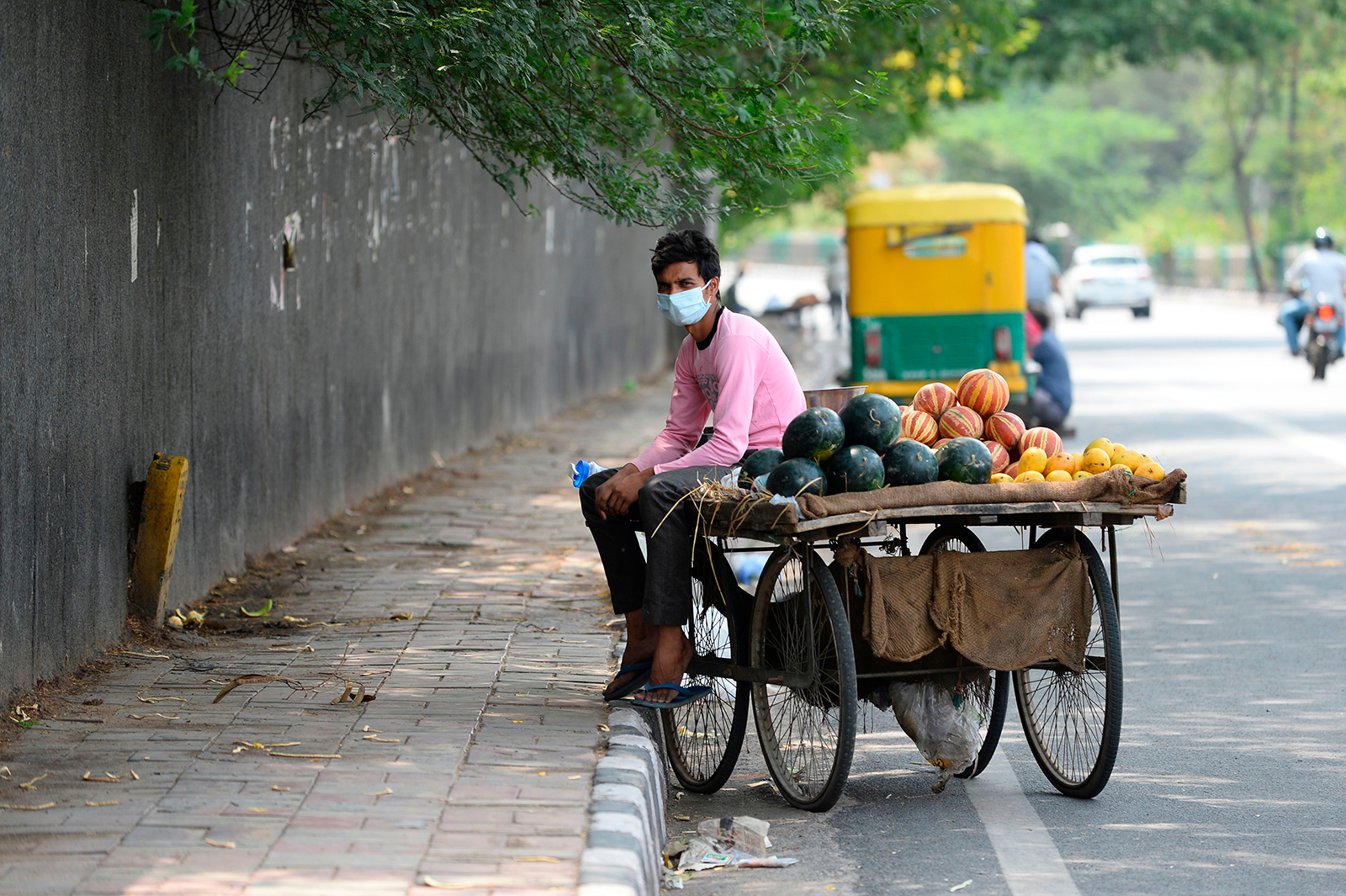
A fruit vendor waits for customers in New Delhi on May 31. Sajjad Hussain AFP via Getty Images
The chief minister of Delhi, Arvind Kejriwal, said India's capital territory will seal its borders for the next week to stop the spread of novel coronavirus.
However, Kejriwal said the new restriction would not stop the movement of essential goods and services across the city's borders.
All shops across the city will be allowed to open every day, but a curfew will be in place from 9 p.m. to 5 a.m. in accordance with guidelines issued by the Indian government. All industries will be allowed to operate, but with a staggered workforce.
Kejriwal also said that hair salons and barbers will be allowed to operate but spas will not reopen yet. The government has also removed restrictions on public and private transport and on the number of passengers who can travel in a car or autorickshaw.
States adjoining New Delhi will continue to only allow minimal movement across their borders, but government officials will be able to travel so long as they present proper identification.
From CNN's Kocha Olarn in Bangkok
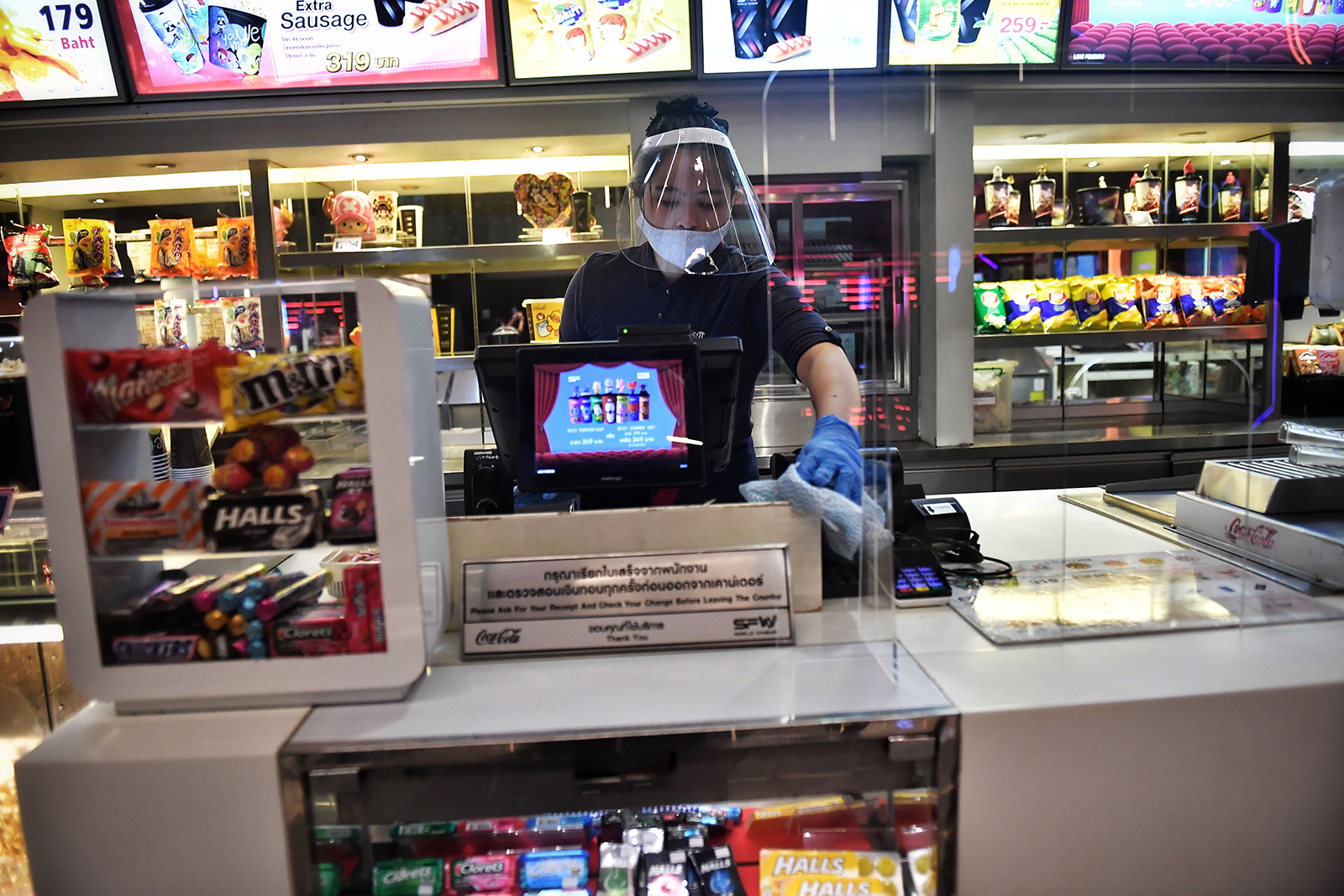
A worker cleans the food counter at a cinema in Bangkok on June 1. Lillian Suwanrumpha/AFP/Getty Images
Thailand will ease some of its coronavirus-related restrictions from today, Prime Minister Prayut Chan-o-cha's office has announced.
The new rules include:
From CNN's Kaori Enjoji in Tokyo
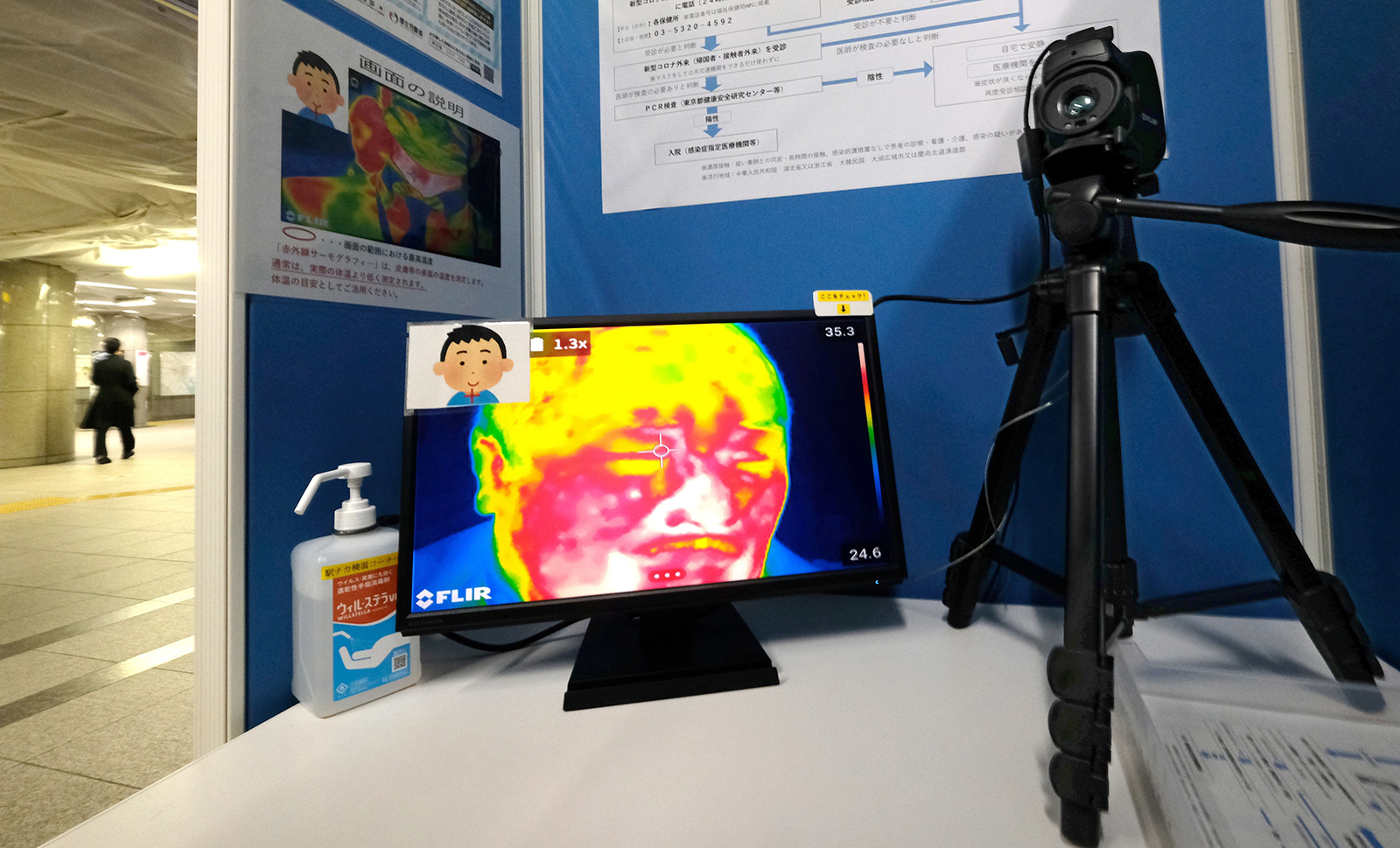
An infrared thermography device used to check body temperature at the Tocho-mae station in Tokyo on March 5. Kazuhiro Nogi/AFP/Getty Images
Thermal imaging cameras are expected to play a big part as Japan begins to reopen following the Covid-19 pandemic.
Retailers in Tokyo are embracing the technology as a way to quickly scan multiple customers for fevers.
The iconic 109 department store in Tokyo’s trendy Shibuya district reopened today equipped with thermal imaging cameras at its entrance, while Isetan Mitsukoshi’s flagship department store opened over the weekend with thermal cameras at its entrances.
The Tokyo metropolitan government has announced that it will set aside 4.2 billion yen ($39 million) to help schools adopt the technology.
From CNN's Anna Sturla and Bonney Kapp
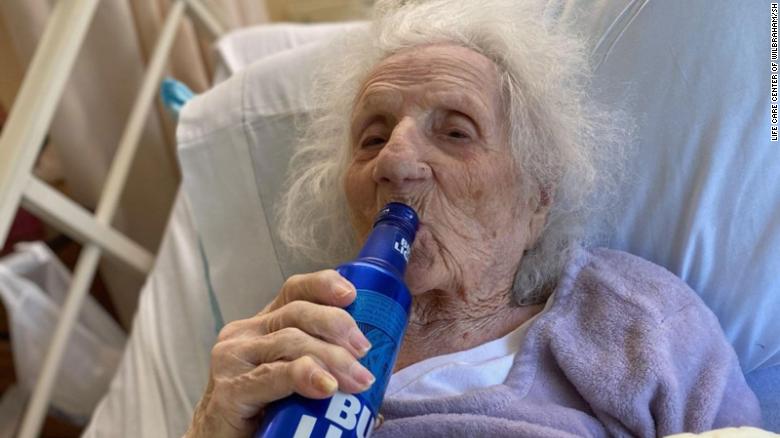
Jennie Stejna enjoys a cold one to celebrate beating Covid-19. Life Care Center of Wilbraham/SH
A 103-year-old Massachusetts woman who recovered from Covid-19 celebrated with a favorite drink -- a cold beer, her family told CNN.
When Jennie Stejna tested positive for coronavirus in late April, her family began preparing for the worst, granddaughter Shelley Gunn said.
At one point, her family was told that Stejna had stopped eating and drinking and might not make it through the night. They called her for one last goodbye, Gunn said.
When Gunn's husband, a US Navy retiree, asked Stejna if she was ready to pass away, she responded "Hell yeah," according to the family.
"She's always been a feisty woman," Gunn said.
But instead of a grim phone call from Stejna's nursing home, on May 8 they received the news that she had tested negative, and was symptom-free, the family said.
From CNN's Alaa Elassar
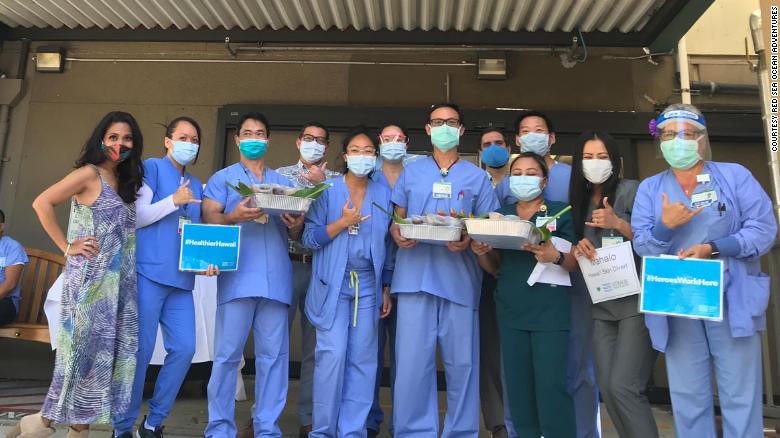
Health care workers at the Straub Medical Center with the donated tuna poke bowls. Courtesy Red Sea Ocean Adventures
When five Hawaii fishermen took to sea, they had one goal in mind: feeding their local health care workers.
One of the fishermen was Kyle Nakamoto, the executive producer of the diving show Hawaii Skin Diver TV, who told CNN the lucky group caught two yellowfin tuna totaling 220 pounds.
The massive tuna was sent to a seafood distributor who cleaned, cooked, and prepared the tuna into more than 300 poke bowls, which were then delivered to Honolulu's Straub Medical Center and The Queen's Medical Center.
"Our staff at Straub Medical Center has been overwhelmed by the support and generosity displayed for our health care workers who have been on the frontlines of this pandemic caring for our patients and our community," Straub Medical Center chief operating officer Travis Clegg said in a statement.
"We are so grateful for all the donations we have received for our health care workers. This particular donation of fresh ahi was especially thoughtful, and we appreciate the hard work and effort that went into catching it and preparing such a wonderful meal for our teams."
From CNN’s Leona Siaw
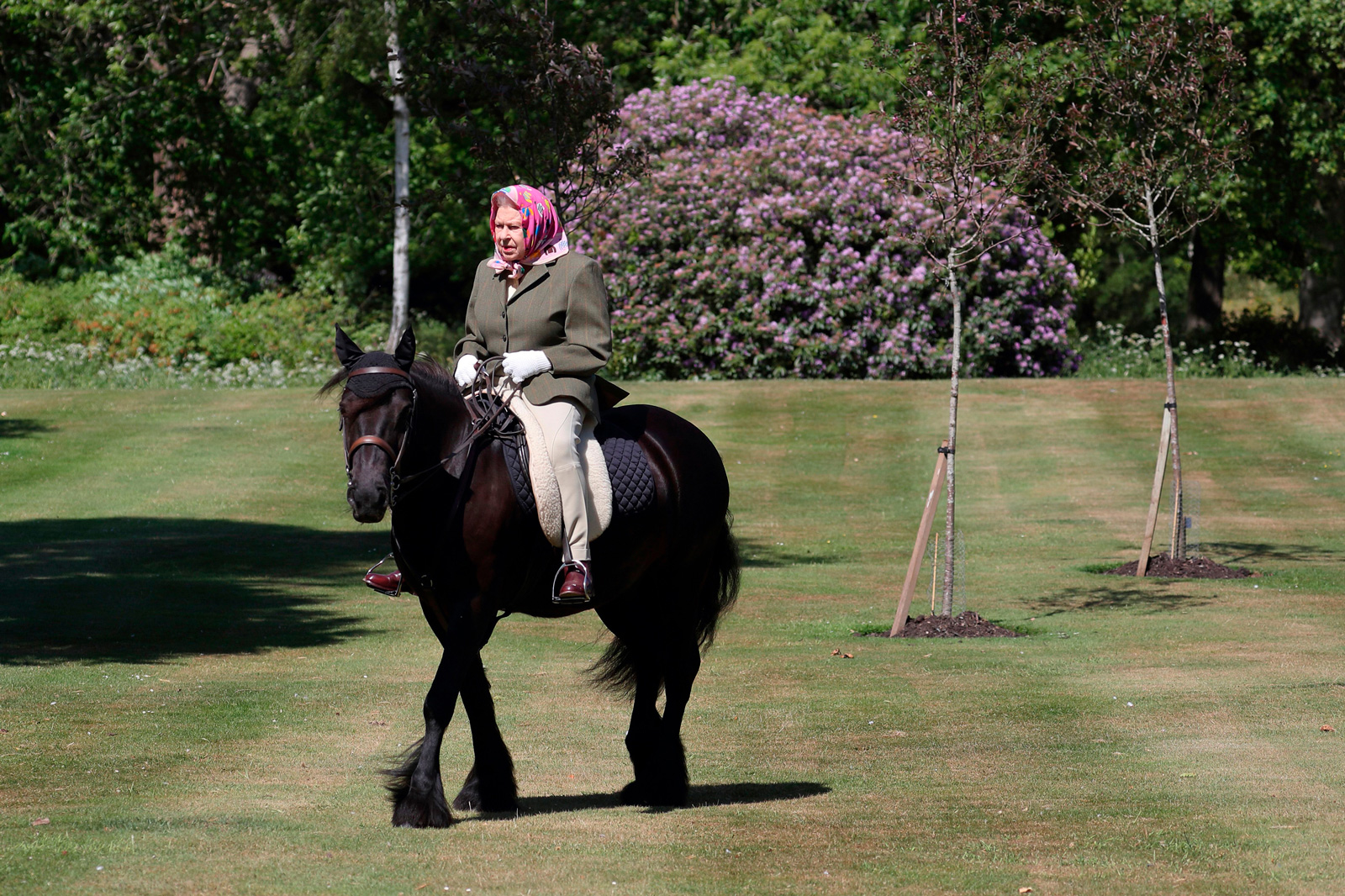
Britain's Queen Elizabeth II rides Balmoral Fern, a 14-year-old Fell Pony, in Windsor Home Park, west of London, over the weekend of May 30 and May 31. Steve Parsons/Pool/AFP/Getty Images
Queen Elizabeth II has been pictured riding a pony on the grounds of Windsor Castle, in her first photographed appearance since the coronavirus lockdown started in the UK.
The 94-year-old Queen has been a passionate horse lover throughout her reign and was photographed over the weekend riding one of her ponies, a 14-year-old Fell Pony called Balmoral Fern. On Sunday, the Royal Family’s verified Twitter page posted photos of the Queen riding.
The Queen has made two televised addresses during the lockdown, the first assuring those in isolation that "we will meet again" and the other to mark VE Day.
From CNN's Nicola Ruotolo and Zahid Mahmood
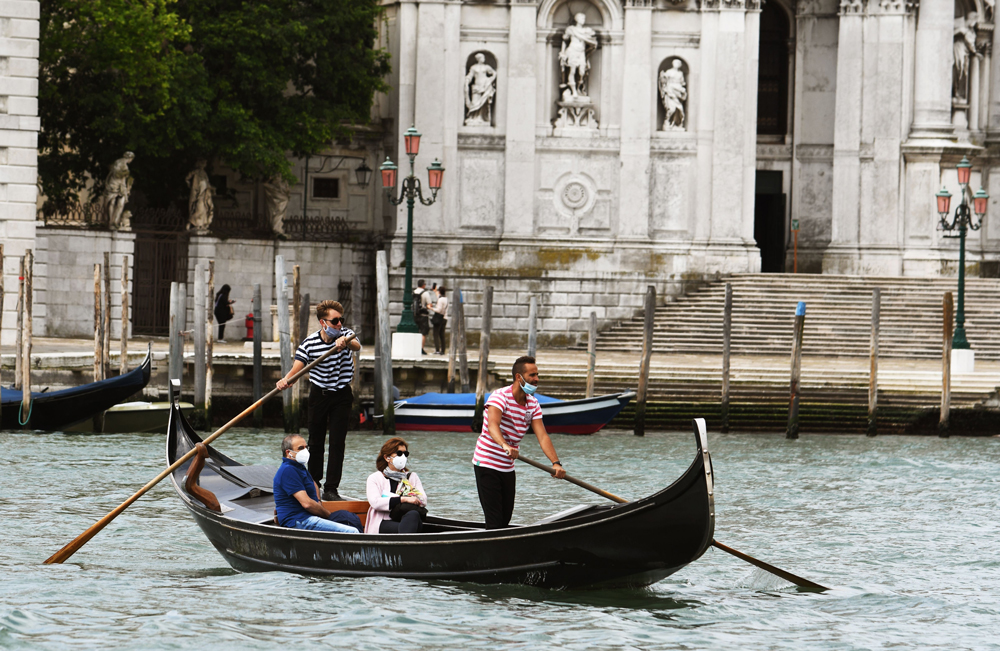
People enjoy a gondola ride on May 30 in Venice, Italy. Andrea Pattaro/AFP/Getty Images
Despite four weeks of loosened restrictions, the number of Covid-19 cases in Italy continue to decline.
The number of active cases of coronavirus decreased by more than 1,600 over a 24-hour period, according to figures released by Italy’s Civil Protection Agency on Sunday.
The statement said that there has been a decrease of at least 1,616 cases since Saturday’s figures, bringing the total number to approximately 42,075.
The Covid-19 death toll in the country currently stands at approximately 33,415 – an increase of 75 deaths due to the virus since Saturday, according to the agency.
Source : https://edition.cnn.com/world/live-news/coronavirus-pandemic-06-01-20-intl/index.html
That’s it from me, Helen Sullivan for today. Thank you for following along. My colleague Simon Burnton will be taking on the blog now to continue our round-the-clock coverage of the coronavirus pandemic.
A reminder that we have a blog dedicated to the George Floyd protests here.
Below are the latest developments from the last few hours:
Manila eases lockdown. Traffic jams and crowds of commuters returned to the Philippine capital on Monday, as Manilla relaxed antivirus measures in a high-stakes gamble to slowly reopen the economy while fighting the coronavirus outbreak. Public transport was still limited and many commuters waited for hours to get a ride despite the government deploying special buses. School classes remain suspended for the next two weeks. Barber shops and beauty salons can open next week at a third of their capacity. The Philippines remains a south-east Asian hotspot for Covid-19, with more than 18,000 infections and 957 deaths.
Japan may open doors to travellers from selected countries. Japan is considering reopening its borders to travellers from selected countries that have low levels of coronavirus infections, as it begins to ease restrictions put in place earlier this year to control the outbreak. As schools, cinemas, sports clubs and department stores reopened in Tokyo on Monday, media have reported that the government is also planning to allow travellers in from Thailand, Vietnam, Australia and New Zealand in the coming months. There was no immediate comment from the foreign ministry.
Hong Kong reports first locally transmitted case in two weeks. Hong Kong has confirmed its first locally transmitted coronavirus cases in more than two weeks, fuelling concerns over its spread as restrictions on movement are relaxed, Reuters reports. The Centre for Health Protection said on Sunday it was investigating two confirmed cases of coronavirus, taking the number of cases so far to 1,085. Four people have died of the disease in Hong Kong.
Wuhan reports zero new asymptomatic cases. Wuhan, the Chinese city of around 11 million people where the Covid-19 pandemic began, reported no new asymptomatic cases on Sunday, according to Chinese health officials. State media, Xinhua, said on Monday more than 60,000 nucleic acid tests were conducted on Sunday, finding no asymptomatic cases. Mainland China reported 16 new cases overall on Sunday, the highest daily number in three weeks. All were reported as imported cases – 11 in Sichuan province, three in Inner Mongolia, and two in Guangdong.
Brazil passes 500,000 Covid-19 cases. Brazil has reported 16,409 new cases, taking the total of infected cases to 514,849. It keeps the country in second place in terms of infections, behind the US on 1.78 million cases. Brazil has moved into fourth in terms of deaths, with 29,314 fatalities, according to the health ministry. President Jair Bolsonaro has repeatedly dismissed the severity of the virus and continued to flout social distancing measures. On Sunday, he rode a horse to a rally calling for the supreme court to be shut down for investigating him.
Moscow eases lockdown despite high virus caseload. Shopping malls and parks are set to reopen in Moscow on Monday as the Russian capital eases coronavirus restrictions despite having the world’s third-largest caseload, with 405,843 infections. The relaxation of the confinement orders in Moscow, the centre of Russia’s outbreak with a population of more than 12 million, comes after President Vladimir Putin announced the epidemic had passed its peak in the country.
North Korea to reopen schools. North Korea will reopen schools this month after shuttering them over the coronavirus pandemic, reports said on Monday. Pyongyang has not confirmed a single infection but has imposed strict rules, including closing its borders and putting thousands of its people into isolation. The new school term – initially scheduled to start in early April – has been repeatedly postponed, although some universities and high schools were allowed to resume classes in mid-April.
The Queen makes first public appearance. In the UK, the Queen has been pictured riding in the grounds of Windsor Castle – her first public appearance since the lockdown began. Windsor is said to be the Queen’s favourite royal residence and she has been photographed over the weekend riding one of her ponies, a 14-year-old Fell pony called Balmoral Fern. The 94-year-old regularly rides in the grounds of Windsor and has been a passionate horse lover and breeder of thoroughbred racehorses throughout her reign.
Spain to extend lockdown. Spain’s prime minister, Pedro Sanchez, has said the country needs 15 more days of lockdown until 21 June “to finish with the pandemic once and for all”, and that he would ask parliament to approve a final two-week extension to the stay home rule. “We have almost achieved what we set out to do,” Sanchez told a press conference, as he expressed his intense relief that the number of new cases in Spain, one of the nations hardest-hit by the virus, had fallen dramatically.
Bangladesh lifts lockdown. Bangladesh lifted its coronavirus lockdown on Sunday, with millions heading back to work in densely populated cities and towns even as the country logged a record spike in deaths and new infections. “The lockdown has been lifted and we are heading almost towards our regular life,” health department spokeswoman Nasima Sultana said, calling on those returning to work to wear masks and observe social distancing. It comes as Bangladesh – which on Friday took an emergency pandemic loan from the International Monetary Fund – reported its biggest daily jump in infections Sunday, with 2,545 new cases and a record 40 deaths.